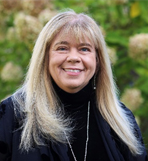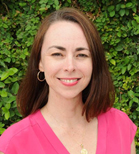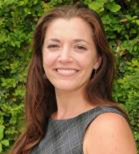This post was written by NCTE member Kathy G. Short and guest authors Carol Brochin and Leah Durán.
The National Endowment for Humanities has long been a rich source of professional learning for NCTE members. These opportunities are being revisioned due to the current pandemic. This summer, many K–12 institutes are available to teachers across the US as virtual seminars that include video tours of museums, virtual interactions with scholars, small group discussions in breakout rooms, immersion in digital archives, and innovative uses of technology.
Spending full days in live virtual interactions would be an overload and would be difficult across time zones, so most institutes are planning to be live four to five hours a day and then provide time for independent research, reading, and viewing of videos and digital archives.
NEH recognizes the professionalism of K–12 teachers by providing a stipend for attending the institutes along with packets of materials and books. Those interested in exploring opportunities for this summer can go to the NEH website for information. Applications for all institutes are due March 1, 2021.
Our institute, We the People: Migrant Waves in the Making of America, challenges the perception that migration is a recent negative phenomenon. This two-week K–12 virtual institute explores the continuous waves of migration in the US through a case study of Arizona, the last continental state added to the union.
We are particularly concerned with the stories often left out of traditional narratives of US history, which are usually rooted in the thirteen colonies and so erase the experiences of Black, Indigenous, Latinx and other communities of color. Through interactions with narratives, authors, scholars, and museums, our goal is for educators to gain knowledge and strategies to support their classroom teaching by using the inquiry strategies from the case study to research migrant waves in their own states.
During our institute, we will meet on Zoom for four hours a day for interactions with scholars and authors, along with discussions of children’s and young adult books and scholarly readings. We will also work asynchronously on digital archives, video museum tours, and interactions with text sets of children’s and young adult books. We are drawing extensively from Worlds of Words, a Center of Global Literacies and Literatures, in the College of Education, University of Arizona.
The Center provides rich resources of fiction and nonfiction children’s and young adult books and supports interactions with books through literature discussions and browsing of text sets. The advantage of the virtual format is that we can invite the authors of these books to join us for interactions as well as have our own discussions.
Tucson is geographically unique due to its proximity to the Tohono O’odham Nation and the US-Mexico border, and offers a wealth of cultural centers, including the Dunbar Pavilion African American Arts and Cultural Center, the Tohono O’odham Cultural Center, the Jewish History Museum, the San Xavier Mission, and the Arizona State Museum. We are working to access these rich resources through video tours and interactions with digital archives.
Because Arizona became a state in 1912, its historical timeline stands in contrast to traditional depictions of US history. Our work is organized across time periods to highlight the contributions of underrepresented groups in Arizona history and to consider how these time periods relate to the states of participants, for example, original Indigenous inhabitants, migrants as European settlers in territories, diverse communities in the early years of statehood, and recent migrants from other US states and the world. This story is more complex in Arizona due to our history as part of New Spain and Mexico and our positioning on the borderland. The central focus surrounding this institute is an understanding that migration is a constant characteristic of our history, not an anomaly, and has contributed to rich resources within each state.
Our institute is also grounded in the importance of educators learning how to research and weigh evidence within the humanities as they explore historical content and fictional narratives. Our goal is that educators leave the institute with resources and literature along with lived experiences and research strategies as a basis for planning curriculum.
We invite those of you who have attended NEH institutes in the past to share your experiences by sending comments to chronicle@ncte.org. Responses may be considered for inclusion in a future blog post.
 Kathy G. Short is a professor of Teaching, Learning and Sociocultural Studies with an expertise in children’s and adolescent literature and is Director of Worlds of Words: Center of Global Literacies and Literatures.
Kathy G. Short is a professor of Teaching, Learning and Sociocultural Studies with an expertise in children’s and adolescent literature and is Director of Worlds of Words: Center of Global Literacies and Literatures.
 Carol Brochin is an associate professor of Teaching, Learning, and Sociocultural Studies focusing on bilingual and multicultural teacher preparation and having taught in middle and high school literature classrooms.
Carol Brochin is an associate professor of Teaching, Learning, and Sociocultural Studies focusing on bilingual and multicultural teacher preparation and having taught in middle and high school literature classrooms.
 Leah Durán is an assistant professor of Teaching, Learning and Sociocultural Studies, who taught in elementary ESL and bilingual classrooms and teaches courses on children’s literature, language development and literacy instruction.
Leah Durán is an assistant professor of Teaching, Learning and Sociocultural Studies, who taught in elementary ESL and bilingual classrooms and teaches courses on children’s literature, language development and literacy instruction.
Find Worlds of Words on Twitter at WorldsOfWords.
It is the policy of NCTE in all publications, including the Literacy & NCTE blog, to provide a forum for the open discussion of ideas concerning the content and the teaching of English and the language arts. Publicity accorded to any particular point of view does not imply endorsement by the Executive Committee, the Board of Directors, or the membership at large, except in announcements of policy, where such endorsement is clearly specified.

